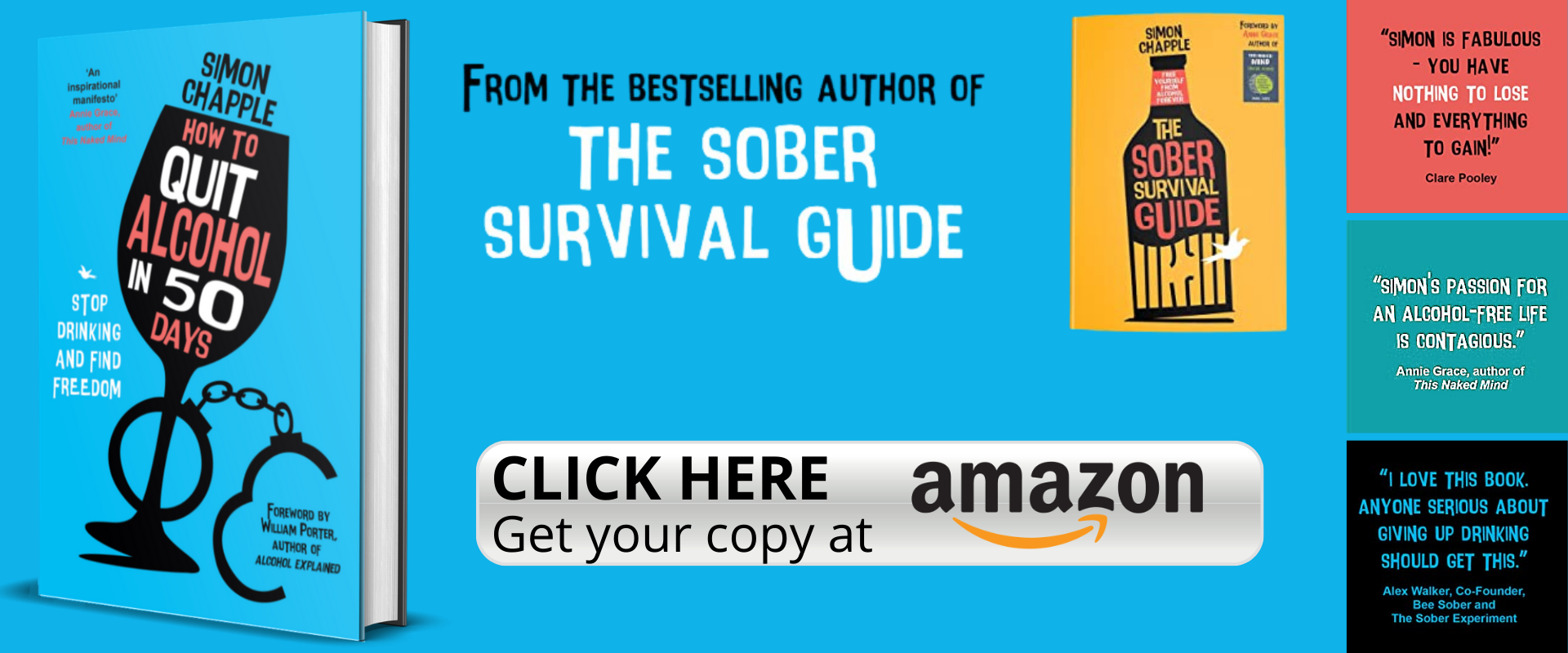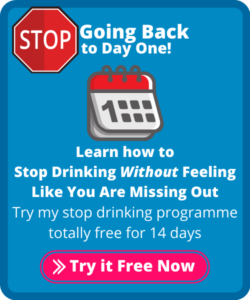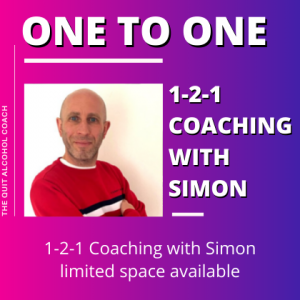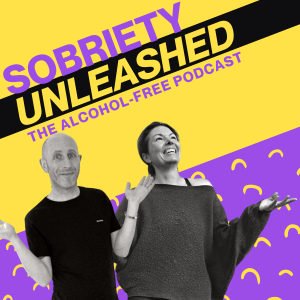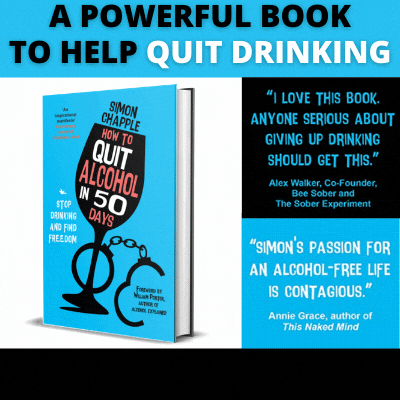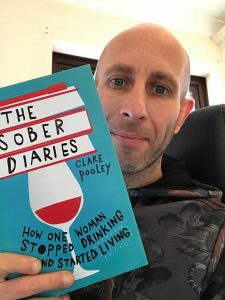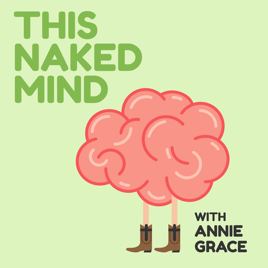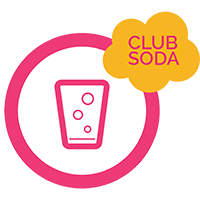Living in Flow – My childhood best-friend shares his story

Chris Donovan was my best friend at school, we spent many of our teenage years hanging out, having sleepovers, experimenting with booze and chasing girls.
I loved Chris, we had a very real connection and I always felt I could share things with him that I would never trust with anyone else.
He was also cool, so incredibly cool, but I don’t think he ever realised it, this probably added to his charm. Chris was always way ahead of the curve with his sense of fashion, and his taste in music was always diverse and one step ahead, he always seemed to know about trendy things before they became mainstream. I remember how he was the first person I ever knew who had satellite television in their home – the first time I ever saw The Simpsons was in his living room, I hated returning to my crappy choice of four television channels after I had been to his place.
I also remember us going to watch Madonna live at Wembley Stadium in 1990, I was 16 years old (I think Chris was the same age) and it was the first time I had ever been to a gig in a stadium, it was an overwhelming experience. I still have the ticket stub to this day, it is in a frame on my wall along with many from the other memorable bands and artists I have seen over the years. I am so glad to have many great memories with a great friend.
As a teenager Chris was a lot of fun to be around, but he was also a complex character and wasn’t always in a happy place, he would sometimes appear to be moody or down and I would struggle to understand why. Later in my life I would suffer with similar struggles and would have to learn how to cope with low moods, anxiety and an all-round lack of happiness.
Sadly, Chris and I drifted apart as we grew older, when you are young you believe you will be friends for life, but rarely does it happen. He currently lives in the North of England, but I am grateful we are still connected through social media.
So you are probably wondering why I am writing about my childhood best friend…well, I recently spoke about the impact that living in a state of flow has had on my life, it has been incredible, watch the video below if you would like to know more about my experience. I believe living in a flow state is an incredibly healthy way to approach life, especially if you can be easily overwhelmed by negative thoughts and emotions.
How to stop being overwhelmed and go with the flow
A few days ago Chris published one of the most powerful and moving pieces of writing I have seen in a while, it was about his struggle with depression and how learning to live in a state of flow has allowed him to reach a happier (although not yet perfect) place. From reading his story, I believe he will soon be in that place and I hope that he will also draw strength knowing that thousands of people will see his story and will use his own experiences to find hope, tactics and encouragement.
Chris kindly agreed that I could share his writing for others to read and hopefully draw inspiration from, you can read it below. I know Chris would love to hear comments and feedback and would be happy to answer any questions. Who knows, if there is interest I might even be able to talk him into an interview!
Enjoy his writing below, keep a tissue handy as I had tears in my eyes by the end…
Flow – By Chris Donovan

In October 2019, I spent two weeks on a psychiatric ward.
Looking back now, there was a grim inevitably about my admission.
For, trust me, 2019 was awful.
It was a grim, grim 12 months. The worst of my life.
Why? Well, there were lots of things but a summary would run as follows:
Although it had been three years since my divorce, and three years since I’d stopped being a stay-at-home dad, I still struggled not seeing my daughters everyday and missed them with a pain I cannot describe…
My job – although worthy – was also back-breaking, and drained me, emotionally and physically….
I was also working nights, which meant an irregular sleeping pattern that was very visibly affecting my mental well-being…
And as my job paid poorly, I was also constantly worried about money…
Due to the double-whammy of night-work and a limited budget, I’d socially isolated myself. I hadn’t meant to, I wasn’t even aware I had; it just… well, it just kind of happened. But it got to the stage where, at one point, I could go weeks without having a meaningful conversation with another adult…
I also had to move. On the surface this was a good thing; my new flat was modern, light and spacious, whereas my old house was so shabby that even the Addams Family would’ve turned their noses up at it. However, having to balance work, childcare, and moving (which is never fun at the best of times) was a bit too much for fragile old me…
Then there was my love-life. Again, thanks to the wonders of hindsight, I (actually, we) should’ve walked away from this a long time before we did. We were the ultimate recycling couple – one week we were thinking about marriage; the next we’d broken up, vowing to never speak to the other again; before making up, and thinking about marriage again; before – yes – breaking up again, and… On and on and on and on…
I could say that people outside the relationship didn’t know what was going on with us from one week to the next, but – the truth is – the pair of us didn’t seem to have much a clue either. The soap opera ran for over three years until it was – mercifully – cancelled. But, by that point, the damage was done; that cycle of perpetual make-up – break-up – make-up – break-up had been exhausting, depleting…
And there was my depression.
I hope I don’t have much in common with the now-deceased, Florida-based, fictional serial killer Dexter, but I’ve always liked the elegant way he described his mental illness; he called it his ‘dark passenger.’ For, depression is my ‘dark passenger’ (granted, mine just tends to make me curl up on the sofa for days as opposed to gruesomely mutilate people, but each to their own).
Most of the time my passenger is a well-behaved, pretty silent, fellow traveler. However, when things in my life start to go askew, he begins to speak up. And given where my life had sunk to by the tail-end of 2019, he had lots to shout about…
Inexorably, I had a break-down.
In reality, this had been brewing for years – decades even. I’d been skating on very, very thin ice for a very, very long time, and had been flirting with full-on mental disintegration for ages; at the end of last year I simply finally, at long last, consummated the relationship.
There was nothing histrionic or exciting about any of it.
There was no flamboyant head-shaving in the full-glare of the world’s media a’la Britney. Outwardly, it was all distinctly low-key. You could almost say it was a very British break-down. One night I sat on my sofa and simply realized I had nothing left to give. I was empty. Spent. A shell of a man. An echo of who I used to be (though, to be honest, I’d been that shell, that echo for years).
That night, I thought about suicide.
Now, I’d considered this before – I’m a depressive, of course I had. But, as mental health experts will tell you, there’s a huge difference between suicidal ideation (where you simply think about ending your life in abstract terms, e.g. “I’d be better off dead”), and suicidal intent (where you actually plan how you would do it, e.g. “that neck-tie would do the job”). The former is (obviously) unhealthy, but not necessarily dangerous; the latter is just downright wrong, and a key indicator that you’re hurting and need help.
And, that night, for the first time, I was distinctly in the latter camp. So much so that, at one point, I genuinely didn’t know if I’d ride that storm out, and simply go to bed, or hang myself.
What saved me was, ironically, one of the things that had brought me to that place: My last job.
For eighteen months I’d worked as a Mental Health Support Worker. It was a rewarding but brutal vocation. One that, given my own mental well-being, I should never have been anywhere near in the first place.
But, it proved to be my salvation.
A lot of the clients I’d supported regularly had their own long dark nights of the soul, and it had been my job to help them through them. The procedures were fixed. First, just listen – it was that simple: just be there and show them someone cared. You’d be amazed how effective that can be. However, if that didn’t work, it was time to involve the NHS – namely, the local Mental Health Crisis Team.
This had happened so often, it had become second nature to me – the mere mention of the word ‘suicide’ evoked a Pavlovian-reaction in me: ‘Crisis Team.’ And, without thinking, it was to those people I turned when I had no hope left.
I was admitted to a psychiatric ward twenty-fours later.
There’s lots to be said on that. To be honest, there’s a frightening amount. Most of which would be positive.
Yes, mental health provision in the UK is underfunded, and stretched to breaking point. But the people who man it are simply astonishing. From the mental health nurse who triaged me, to the cook who always gave me extra chips with my evening meal, I have never encountered such compassion and kindness as I did on the ward (they’re also very good at sticking a rocket up your backside when needed).
And as for the other patients? I can’t lie; initially, a few scared me. Some mental illnesses are more ‘overt’ than others. Whereas mine makes me quieter, more withdrawn, other conditions have the opposite effect. And it took me a few days to get used to the occasional bursts of loudness and bedlam. However, like the staff, there was not one patient who didn’t treat me with sympathy and respect.
On a much more selfish note, it helped me see how other people – in my everyday life – perceived me. Although I had worked in the field of mental health, I had never spent much time with other people with depression. But, being on the ward, with lots of people who also had depression, enabled me to see how hard my mental illness must have been for people close to me to deal with.
I suppose I’d just never considered it all before, but, during those fourteen days, I experienced – for the first time – what it was like for someone else to suddenly pull away, and shut down; for someone else to be full of self-hate, and fail to see their worth, despite the fact that, from my perspective, they were an utterly decent person. They were also me.
Lots of things happened that changed my perspective of my mental illness, but those insights were the greatest.
There’s – undoubtedly – a vast amount more to say about all that. But, for now, all I do want to say is this: Those two weeks saved me.
They cost me a lot, personally. Things that I’m still counting the cost of. But I’m still here. And that’s in no small part due to the ward, and the people I met there.
Anyway…
Fourteen days later, I was discharged.
Life was different. Had never been more different. Although it had only been two weeks, my lovely flat now seemed thoroughly alien to me. As did going to the shop. Or the bank. Or… everything, really. Liverpool had never seemed so, so strange.
But, although still low, I was nowhere near as beaten as I had been a fortnight earlier. I was okay. Not brilliant, but okay – and I’d take that. Armed with my okay-ness, I slowly, step-by-step, began re-building my life.
Over those strange first few months, my life (overall) stabilized, and even improved in some areas. There were still huge things to deal with (and one’s person absence left a void that was proving impossible to fill). But I was okay. Life was getting better…
… But not by much and not steadily.
I wasn’t permanently sad any more but I also wasn’t consistently happy.
I was missing something.
In hindsight, this was pure naivete. I can see that now. To imagine that I would find contentment simply by taking anti-depressants, and baring my soul to the counselor I’d started seeing was absurdly simplistic. All this was going to do was pull me out of the pit I was in, not turn my life around. To do that, I actually had to change my life.
But how?
In the absence of knowing, I did what well-educated, reasonably intelligent person would do – I turned to the Internet.
Heading straight to the heart of the issue, I opened Google (other search engines are available, consumers), and typed in ‘How to be happy.’ Instantly, I was engulfed by a tsunami of advice. It took all forms: blogs by well-meaning amateurs espousing pseudo-Buddhist philosophy; heavily-scientific analyses of how our brains work composed by clinical psychologists – there’s no shortage of stuff.
The really embarrassing thing was that most of it was new to me. It turns out I had been missing something. Quite a lot, actually; I really didn’t know much about being happy (which, although a revelation to me, is probably the smallest surprise in the world to the people who know me well).
After a while, I’d realized I’d become slightly obsessed with the topic of ‘Happiness.’ It wasn’t just because trawling through all this stuff became an enjoyable pastime in itself (simply put, reading about happiness made me happy), it was also because it was genuinely interesting. Not least as there was so much disagreement out there.
Admittedly, there’s a huge amount of consensus about many things (e.g. people who view relationships with family and friends as being the most important aspect in their lives tend to be happier than those who see material goods as being the end-all).
But there’s a lot of conflict as well. Age, upbringing, gender, social class, nationality – all of these elements influenced a person’s concept of what it meant to be happy. Definitions varied and that intrigued me.
But I also enjoyed my reading for the very reason I’d began exploring this topic in the first place; it gave me ideas to try out.
One such idea was the concept of ‘Following the Flow.’
This is simply a fancy-pants way of describing that feeling you get when you’re so happily engrossed in a task that any nagging, negative, sub-conscious thoughts are suppressed; something fairly useful if you want to be happy. You’ll know when this has happened as you’ll often lose track of time as you were so involved in what you were doing.
Whether it’s pounding away on a drum kit, or running around a rugby pitch smacking people, or chatting with someone over a coffee or a pint, time has flown – flown because you’ve been happily following the flow.
The only problem was that, aside from spending time with my daughters, I didn’t think I had anything I really enjoyed doing any more, nothing where I could ‘Follow the Flow.’
But of course I did – the very same thing I’m doing right now; writing.
I’m not the greatest writer to have ever lived – whilst what I create is, sometimes, okay, the majority of the time it needs burning (and then burning again, just to make sure).
But, most of the time, I love it – its one of the few things I can do and follow the flow. The issue has always been a shortage of topics to write about. Perhaps it’s an indication of my limited abilities and imagination, but if I don’t care much for the subject, my work is stilted, and dull, and I struggle to take any pleasure in the process.
But, if the topic at hand interests me then my stuff is passable and it’s fun. (And fun = happy, the very thing I’m trying to get more of.)
However, those kinds of passions are rare and I’ve always found them difficult to find. Except I had one now – my new-found obsession with what I could do to make myself happier. Two birds with one stone: That’s a good (happy) start.
Another way to build happiness into your life is to set yourself goals.
No matter how trivial or daft they might seem to someone else, achieving your goals breeds happiness in the same way rabbits produce baby rabbits; rapidly. Attainable goals, that is – if your target is impossibly tough or too abstract, you’re only destined to fail; happiness does not that way lie (as Yoda might phrase it).
Although its not always healthy to put all of your proverbial eggs into one imaginary basket (the more things that are at stake, the greater the potential failure, and the larger the dose of unhappiness if something goes wrong), sometimes its a risk worth taking if the rewards are big enough, or if you can tie a goal to something you love doing (i.e. ‘following the flow’).
So, I had my ‘following the flow’ task – writing; I just needed a goal. I knew I didn’t just want to write, I wanted to do so regularly, and I wanted to actually finish projects (my hard-drive is littered with half-completed sketches and short films – enough of that nonsense). It was then that I recalled a piece of advice the great Ray Bradbury gave to aspiring writers; “Write one short story a week for a year. There’s no way you won’t get better – after all, its impossible to write fifty-two terrible stories in a row.”
Substitute ‘short story’ for ‘articles’ (well, mainly articles; I do want to give the short story stuff a whirl as well) and I had my goal; one a week.
I only needed one final thing; an incentive.
I know me – my discipline is questionable. If I didn’t have an incentive, I’d only slack off when I was tired, or low, or when there was a new episode of ‘The Punisher’ on Netflix. Saying I was going to produce one piece a week was all and well good but I needed a reason to do this. A reason such as saying – publicly – that I was going to post one article a week about my recovery. One article about whatever aspect of happiness I’d been exploring that week, and my attempts to try and implement in my life. (Well, that and the occasional short story, of course.)
Yeah, that’d do it.
And so here we are. Those are my thoughts about happiness and those are my reasons for doing this. I’m sure you’ve gathered by now but I’m not a ‘happiness expert’ (and if you need any further validation of that, just ask anyone who’s ever met me). I’m happier than I was but I’m still learning. I’m just someone who is trying to better their life and sharing something that genuinely interests me.
I do hope you like it; that’d be lovely. But, if you don’t… well, that’s too bad.
But it makes me happy.
Chris Donovan
———————————————————————————————————–
MORE HELPFUL RESOURCES FOR STOPPING DRINKING ALCOHOL
———————————————————————————————————–


Don’t miss another video – click below to Subscribe and also click on the Bell Icon to be notified about new videos.
Subscribe to my channel here: https://www.youtube.com/channel/UCkDiUhERjbdHN0kNXbD8UBQ/?sub_confirmation=1

https://www.joinbesober.com

https://www.instagram.com/besoberandquit

If you need some inspiration, check this out…

1 – How I quit alcohol after 40 years – https://www.youtube.com/watch?v=H0ydqjrN0AI
2 – Awesome tactic to stop alcohol cravings fast – https://www.youtube.com/watch?v=GedYoBZ_W2M&t
3 – 7 tips for the first week of sobriety – https://www.youtube.com/watch?v=Pq4x0vBEwMw&t
4 – Does alcohol cause depression and anxiety – https://www.youtube.com/watch?v=tkrQpZPHBls&t
5 – Weight loss and stopping drinking alcohol – https://www.youtube.com/watch?v=xyw9jM0kj5U&t



